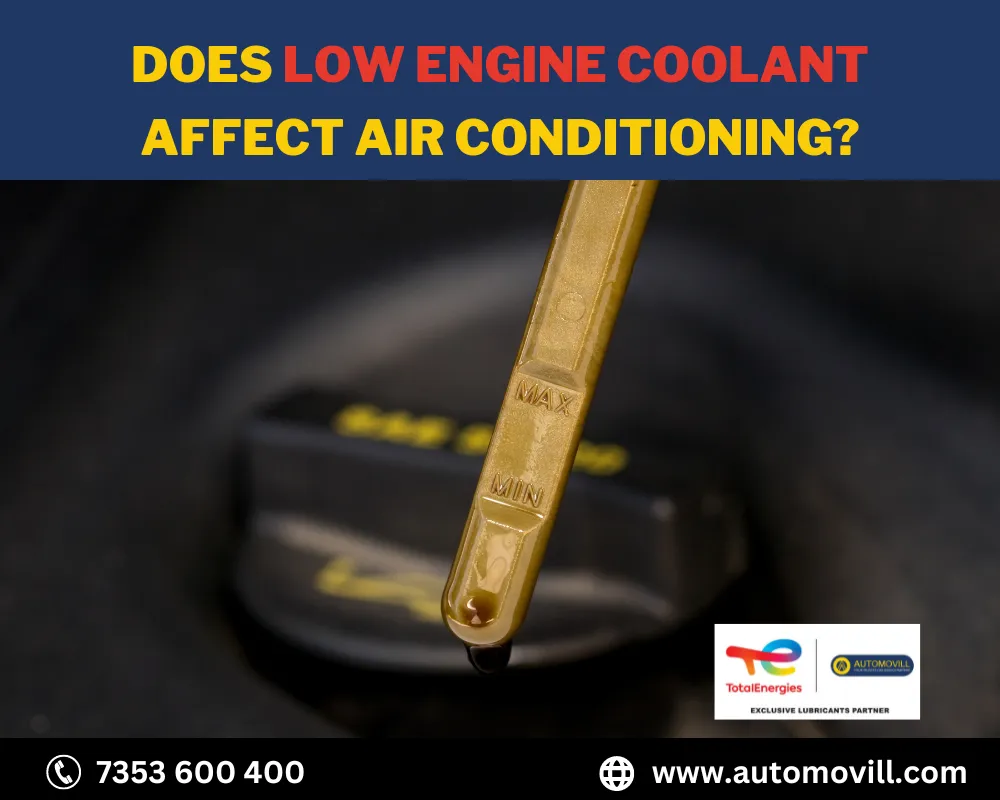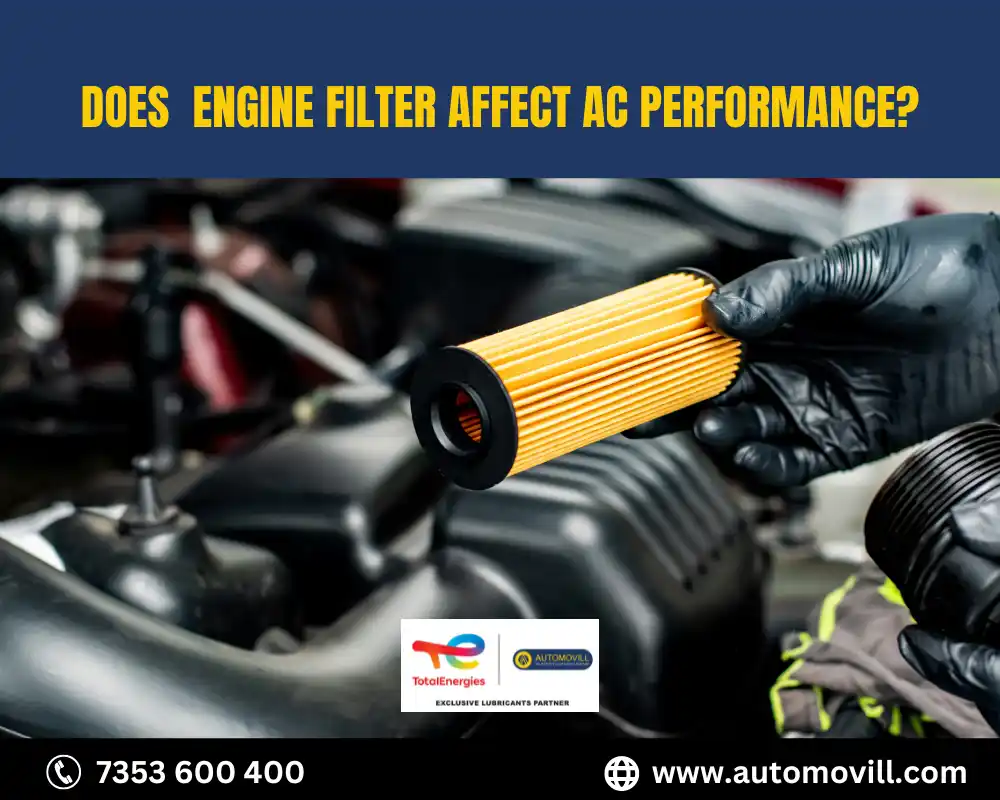When it comes to the health of your car’s engine, various components play a crucial role. One of these components is the AC compressor, which is responsible for cooling the air inside your vehicle. But you may wonder, does the AC compressor affect the engine?
When considering the components of a vehicle’s air conditioning system beyond the compressor, several key parts come into play. Here’s a closer look at these essential elements:
1. Evaporator
- Acts as the system’s cooling coil.
- Absorbs heat from the vehicle’s interior as the refrigerant evaporates.
2. Condenser
- Functions like a radiator.
- Cools and condenses the refrigerant coming from the compressor, releasing heat outside the vehicle.
3. Receiver-Drier
- It’s a filter for the liquid refrigerant.
- Removes moisture and debris to prevent damage to other components.
4. Expansion Valve
- Controls the flow of refrigerant into the evaporator.
- Ensures optimal cooling by adjusting refrigerant flow based on the cooling demand.
Additional Components:
- Hoses and Tubing: Facilitate the movement of refrigerant throughout the system.
- Fans: Aid in moving air over the condenser to enhance heat dissipation.
These parts work in unison to maintain a comfortable environment inside your vehicle, ensuring that your air conditioning system runs efficiently.
Let’s delve into the relationship between the AC compressor and your car’s engine to understand how issues with the compressor can impact its performance.
How Does the A/C Compressor Function in a Vehicle’s Air Conditioning System?
The A/C compressor is the heart of your vehicle’s air conditioning system, playing a pivotal role in keeping you cool on the road. Think of it as the power source for your car’s A/C, where it performs the crucial task of pressurizing the refrigerant. This process is essential before the refrigerant moves to the condenser.
Key Functions of the A/C Compressor:
- Pressurization of Refrigerant: Initially, the refrigerant is in a liquid state. The compressor pressurizes it, transforming it into a gas. This change is vital for the air conditioning system to generate cool air efficiently.
- Driving Force: In many modern vehicles, the engine accessory belt is responsible for driving the A/C compressor. This connection enables the continuous operation necessary for maintaining your vehicle’s internal climate.
Importance of a Functional Compressor:
A well-functioning compressor ensures that the A/C system can consistently blow cold air. If the compressor is faulty or failing, not only can it disrupt the cooling process, but it can also impact the engine’s performance due to its interconnected nature with other engine components.
In summary, the compressor is indispensable for the performance and reliability of your vehicle’s air conditioning system, ensuring comfort and efficiency on every drive.
Understanding the Components of a Vehicle’s Air Conditioning System
A vehicle’s air conditioning system is composed of several key components, each playing a crucial role in delivering that refreshing coolness you crave on a hot day. Here’s a breakdown of the main participants in this intricate process:
1. Compressor
The compressor is the heart of the A/C system. It acts as the power unit, pressurizing the refrigerant before it moves through the rest of the system. By converting the refrigerant from a gas to a liquid state, it enables the system to generate cold air efficiently.
2. Condenser
Following the compressor’s work, the refrigerant flows into the condenser. Situated typically near the front of the vehicle, this component dissipates heat from the refrigerant, transforming it back into a cooler liquid, ready for the next step.
3. Evaporator
Located inside the cabin, the evaporator absorbs heat from the air within your car. As the refrigerant flows through the evaporator, it evaporates into a gas, which cools the air before it is blown into the cabin.
4. Expansion Valve or Orifice Tube
This component regulates the flow of refrigerant into the evaporator. Acting as a gatekeeper, it ensures the correct amount of refrigerant enters the evaporator to maximize cooling efficiency.
5. Receiver-Drier or Accumulator
Depending on the type of system, your vehicle may have a receiver-drier or an accumulator. These parts play a vital role in absorbing moisture from the refrigerant, preventing corrosion or ice formation which can hinder performance.
By maintaining these components in good working order, you ensure your vehicle’s air conditioning system operates effectively, providing you with the comfort you need regardless of the outside temperature.
Symptoms of a Bad AC Compressor:
Before we explore the impact on the engine, it’s essential to recognize the signs of a failing AC compressor:
- Odd Noises
- Worn Out Serpentine Belt
- Warm Air Coming from the Vents
- Leaking Refrigerant
How to Identify Issues with an A/C Compressor
When dealing with potential A/C compressor problems, it’s crucial to conduct a thorough inspection. Here’s how you can do it:
- Visual Inspection of the Clutch
Start with a close look at the clutch. Ensure it engages and disengages smoothly. A malfunction here can often signal compressor issues. - Examine the Belts
Check the belts connected to your compressor for wear and tear. Cracks or frays might indicate that they need replacement, which can affect the compressor’s performance. - Inspect the Compressor
A detailed inspection of the A/C compressor itself is essential. Look for any unusual noise or vibration, which might suggest internal damage or failure. - Monitor Temperature Changes
Pay attention to any fluctuations in the temperature output. Inconsistent cooling can be a strong indicator that the compressor is not functioning correctly. - Check for Leaks
Detecting leaks early can save significant hassle. Look for any oil or refrigerant around seals and connections, as leaks reduce efficiency and may harm the compressor over time.
By addressing each of these areas, you can effectively diagnose and address potential compressor issues, ensuring your A/C runs smoothly and efficiently.
Can a Bad AC Compressor Cause Engine Overheat?
While the compressor itself doesn’t cause overheating, a malfunctioning AC compressor clutch can strain the engine, potentially leading to overheating.

Credit: www.automovill.com
Effects of a Bad AC Compressor on Engine:
It’s crucial to address AC compressor issues promptly to prevent adverse effects on your engine, such as:
| Effects on Engine | Consequences |
|---|---|
| Extra Strain | May cause overheating |
| Increased Workload | Engine wears out faster |
| Stalling or Shutting Off | Refrigerant leak can affect engine function |

Credit: www.amazon.com
Can You Drive with a Bad AC Compressor?
Driving with a faulty AC compressor can potentially harm your engine and lead to further issues. It’s not recommended to continue driving if you suspect AC compressor problems.
Should You Drive with a Failing AC Compressor?
It’s unsafe to drive with a failing AC compressor due to the risks it poses to your engine and overall vehicle safety. Prompt repairs are essential.
Remember, regular maintenance of your car’s AC system is vital to ensure both comfort and the health of your engine. Addressing any AC compressor issues promptly can prevent more significant problems down the road.
Now that you understand the potential impact of a bad AC compressor on your engine, make sure to address any related concerns promptly to keep your vehicle running smoothly.
Frequently Asked Questions For Does Ac Compressor Affect Engine : Impact On Performance
Can Bad Ac Compressor Cause Engine Overheat?
Yes, a bad AC compressor can cause engine overheating by putting extra strain on the engine.
What Happens When Ac Compressor Goes Bad?
When the AC compressor goes bad, several symptoms can occur. You may notice odd noises coming from the AC system, a worn-out serpentine belt, warm air coming from the vents, or leaking refrigerant. If the compressor is dragging and causing strain on the engine, it can lead to overheating.
Additionally, less air will come out from the vents, the air may be warm, and the system may run without actually cooling your home. It’s important to address a bad AC compressor as it can result in higher power bills and potential damage to your engine if not resolved.
Can I Still Drive My Car If The Ac Compressor Is Bad?
It is not recommended to drive your car with a bad AC compressor. The compressor plays a crucial role in the air conditioning system, and if it is not functioning properly, it can cause strain on the engine and potentially lead to overheating or other damages.
It’s best to get the compressor repaired or replaced before driving the vehicle.
Can Bad Ac Compressor Cause Engine To Shut Off?
Yes, a bad AC compressor can cause the engine to shut off due to the increased strain on the engine.


1 thought on “Does Ac Compressor Affect Engine : Impact on Performance”
Pingback: AC Compressor Locked Up Car Won't Start: Fixing Guide - Air Conditioner
Comments are closed.